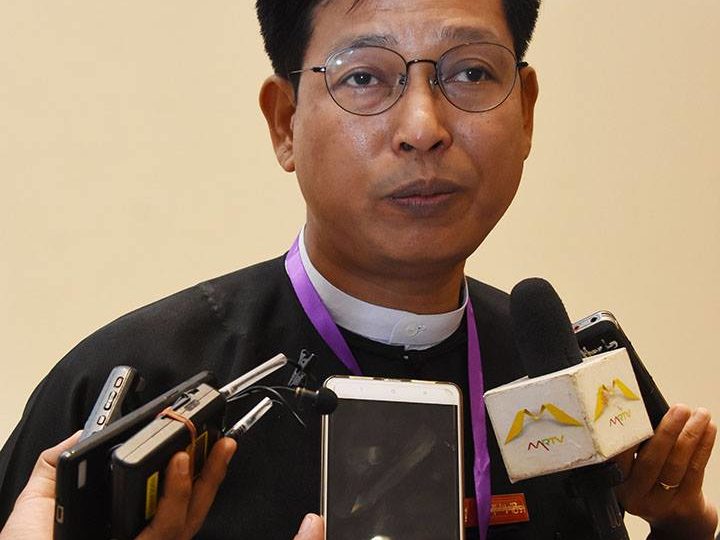The Myanmar government rejects the report compiled by UN investigators that accuses Myanmar military leaders of genocide against the Rohingya in northern Rakhine State, government spokesman Zaw Htay told the Global New Light of Myanmar today.
“We didn’t allow the [fact-finding mission] to enter into Myanmar, that’s why we don’t agree and accept any resolutions made by the Human Rights Council,” Zaw Htay said, referring to the UN body that commissioned the report.
The spokesman also admitted that the government-appointed Independent Commission of Enquiry was formed “to respond to false allegations made by the UN agencies and other international communities.”
Zaw Htay’s description of the commission resembles those of its members. At a press conference in Naypyidaw earlier this month, commission member Kenzo Oshima, a former Japanese ambassador to the United Nations, said: “Given the fact, there is so much, in some reports which have come out, reports which are frankly too one-sided, I imagine that the government has felt the need to set up a commission such as this one, with the participation of foreign members, with the desire to bring in more balance, set the record straight.”
Philippine diplomat Rosario Manolo, the commission’s leader, said at the same press conference that there would be “no blaming of anybody, no finger-pointing of anybody” by the commission.
The Myanmar government and military insist that they clearance operations in northern Rakhine State were a legitimate response to attacks by Rohingya insurgents against security outposts starting on Aug. 25, 2017.
During his interview, Zaw Htay insisted that “Myanmar has zero tolerance to any human rights violation, and there is no exception on it.” He called on anyone with any suspicion of a human rights violation to “just give us strong evidence, record and date so that we can undertake the investigation into it.”
Shortly after UN investigators released their report on Monday and called for Myanmar military leaders to be prosecuted for genocide and crimes against humanity, Facebook banned from the platform 20 individuals and organizations linked to the alleged crimes, including Supreme Commander Min Aung Hlaing. Zaw Htay said the government is trying to figure out how to retrieve the deleted accounts and pages.
“Increasingly, Facebook has been a useful instrument for those seeking to get information in a context where, for most users, Facebook is the Internet,” he said. “There is no doubt that Facebook has both its pros and cons.”




